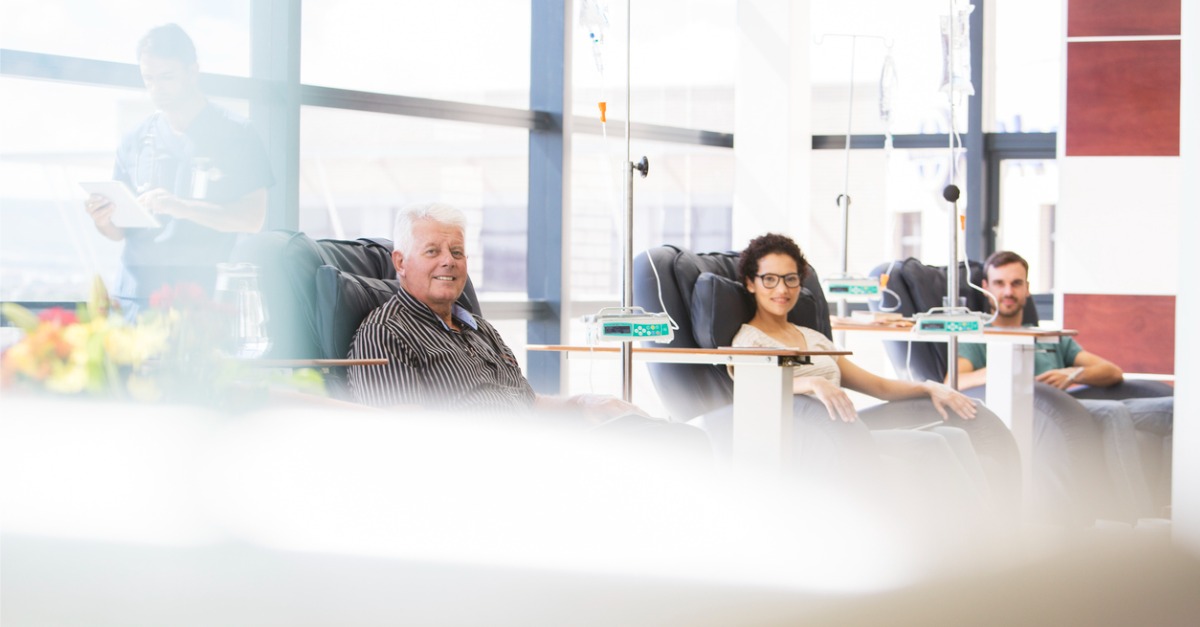Chemotherapy is a cancer treatment that uses medicine to destroy cancer cells. It works by targeting cancer cells and slowing their growth, stopping them from spreading, and killing them off entirely. Because of its chemical makeup, chemotherapy can also kill other healthy, fast-growing cells in the process, which means you may experience some side effects while receiving treatments. If you’re preparing for chemotherapy, here are some basics to know.
Types of Chemotherapy Treatment
Depending on how it’s delivered to your body, chemotherapy can be administered in a variety of settings, including hospitals, doctor’s offices, and medical clinics. In some cases, it may even be given in your home. Chemotherapy medicines come in different forms — all depending on your type of cancer and overall health. Some can be taken orally via a pill. Others can be injected directly into your body. Most forms are given intravenously.
How often you receive treatment can also vary; some patients may receive chemotherapy daily, while others may receive it weekly or monthly. The precise treatment plan depends on the type of cancer you have, and how your body responds to the medications. These different intricacies are why the best treatment for you is often best found when your oncologist and primary care physician are working closely together.
Common Side Effects
Chemotherapy drugs target fast-growing cells — including healthy ones. Some of the normal cells that are most often damaged by chemotherapy include hair follicles, blood-forming cells in your bone marrow, and cells within your digestive tract, mouth, and reproductive system.
There are medications available to help control the impact of chemotherapy on your body, as well as medicinal and holistic treatments that can reduce side effects. Just as treatment plans are frequently unique, everyone also experiences side effects differently. Both severity and duration can vary significantly. For some people, lasting problems such as neurological or fertility issues may also linger even after treatment, but others may have no long-term complications.
Although each person is different, some of the most common side effects of chemotherapy include:
- Exhaustion
- Hair loss
- Infections
- Anemia
- Gastrointestinal issues, including nausea, vomiting, diarrhea, constipation, and appetite changes
- Problems in the mouth and throat, such as the development of sores
- Weight fluctuations
- Difficulty concentrating or focusing
- Mood changes
- Dry skin and other changes to the skin and nails
- Bladder changes
- Libido changes
Questions to Ask Your Doctor
Starting chemotherapy can be daunting, but you’ll feel better prepared if you’re well-informed. While your provider will likely discuss treatment with you in detail, consider asking the following questions if they haven’t already been covered.
- What are the treatment goals?
- What type of chemotherapy will I receive, how, and at what frequency?
- Which side effects am I most likely to experience?
- What type of testing will I receive to see how chemo is working, and at what intervals?
- Should I continue taking other medications, or are there any potential drug interactions I should know about?
- What serious side effects should I watch for, and what should I do if I experience them?
- How will receiving chemotherapy affect my daily routine? Are there any lifestyle modifications I should make?
- What happens if I miss a treatment?
How to Prepare
Your doctor will provide instructions on how to prepare for your specific form of treatment. Aside from following their recommendations, you can get ready by trying to get ample rest ahead of time, drinking lots of water, and identifying support people to provide assistance and TLC when you need it. Comforting distractions like podcasts, audiobooks, coloring books and word puzzles can also help pass the time during treatments.
Above all, be ready for changes. Battling cancer can be stressful, but ignoring the changes that chemotherapy may bring will only add to your discomfort. Over time, for example, you may find that having certain foods (such as applesauce and saltine crackers) soothe your stomach, while others (like red meat or dairy) cause more irritation. Your energy levels and moods may also fluctuate between treatments, as well as sleep patterns and pain levels.
Thanks to advancements in medical research and technology, there are multiple cancer therapies available today. Chemotherapy is one of the many types of cancer treatments offered at University Cancer & Blood Center. Find out more about our approach to medical oncology online, or call 706-353-2990 for more information from our oncology team.

















